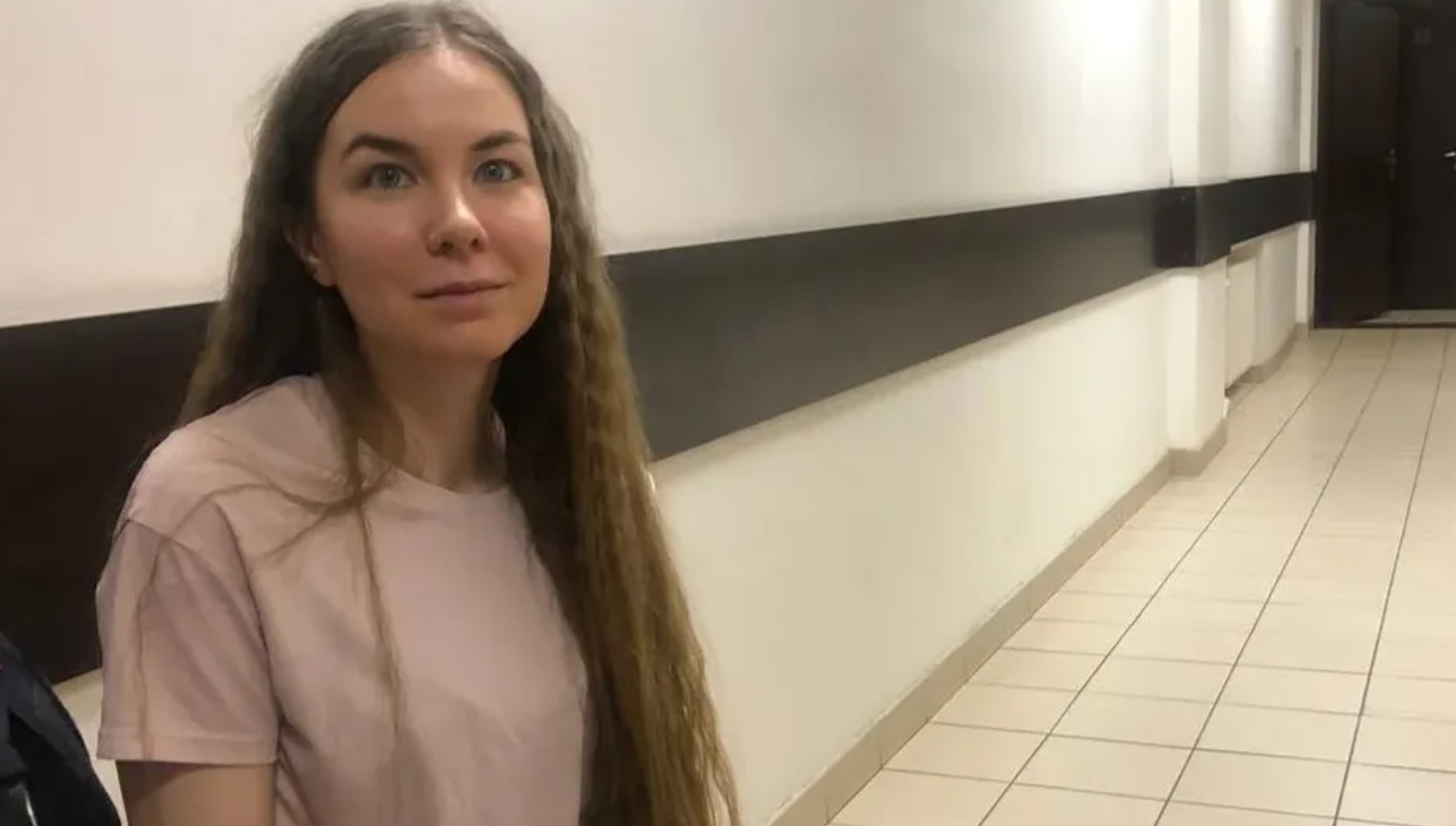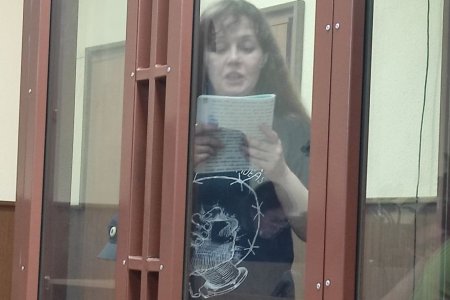
Russia has resorted to Soviet-style punitive psychiatry against Viktoria Petrova for social media posts condemning Russia’s war of aggression against Ukraine. While the young woman’s forced incarceration in a ‘psychiatric hospital’ is initially for six months, there is no guarantee at all that she will be released after this, with such ‘psychiatric treatment’ for dissident views potentially indefinite.
Viktoria Petrova is turning 30 on 22 January 2024, with this her second birthday in Russian detention. The St Petersburg marketing specialist was arrested on 6 May 2022 and has been in custody ever since because of a social media post roundly condemning Russia’s military aggression and writing about the grave international crimes that Russia is committing.
She was charged under Article 207.3 § 2 of Russia’s criminal code, the worst of four new criminal or administrative charges rushed into legislation within ten days of Russia’s full-scale invasion. This punishes for something claimed to be ‘circulating knowingly false information about the actions of the Russian armed forces, motivated by political enmity and hostility’. Although referred to as the law against ‘fake news’, it has exclusively been used against those who tell the truth about Russia’s aggression, about the bombing of civilians and other war crimes. These are claimed to be ‘knowingly false’ as they conflict with the lies told on a daily basis by Russia’s defence ministry.
In Petrova’s case, the charge was over a post on the social network VKontakte from 23 March 2022. The Memorial Support for Political Prisoners Project, which has recognized Petrova as a political prisoner, reports that the post was later deleted by VKontakte, but that its content can be gauged from the indictment. Petrova strongly condemned Russia’s military aggression against Ukraine. She accused Russian leader Vladimir Putin & Co. of causing the death of civilians and of “genocide against the Ukrainian people”, and the state media of lies and manipulation.
Viktoria Petrova was taken into custody just one day after the arrest, also in St Petersburg, of Olga Smirnova, a 55-year-old architect and civic activist who had previously spoken out tirelessly in support of Russia’s Crimean Tatar and other Ukrainian political prisoners. It is unclear whether the differences between the two cases are because Smirnova’s earlier defence of the Kremlin’s Ukrainian hostages had already annoyed the enforcement bodies, or whether it was over the number of entirely truthful, and damning posts. Both women have been in detention since May 2022 on the same charge, however Olga was sentenced on 30 August 2023 to six years’ imprisonment.
Although Petrova was initially questioned ‘as a witness’, this may well have simply been to avoid having a lawyer present. By the time Anastasia Pilipenko, the lawyer her family contacted, arrived, Petrova’s status had already been changed to that of ‘suspect’. There was, however, a difference in that the ‘investigator’ initially said during the court hearing on 7 May 2022 that he had no objection to the defence’s application for Petrova to be placed under house arrest, and not in detention. According to Pilipenko, it was the ‘judge’ who effectively pushed for detention, repeating the question until the ‘investigator’ changed his answer and asked for detention.
In April 2023, the prosecutor presented ‘documents of a medical nature’ purportedly based on a complaint from a cellmate that Petrova was “behaving strangely”. What such ‘strange behaviour’ consisted of is unknown, as are the results of the psychiatric assessment undertaken and then read out behind closed doors. Neither Pilipenko (who would have been forced to sign a non-disclosure agreement) nor Petrova agreed with the assessment, but the attempt to appeal against it was unsuccessful. She has been in a psychiatric hospital ever since then.
On 25 December 2023, Petrova was sentenced by Kalininsky District Court in St Petersburg ‘judge’ Gennady Pilekhin to forced ‘treatment’ in the Skvortsov-Stepanov City Psychiatric Hospital No. 3 in St Petersburg. Such a ruling means that Petrova was deemed to have not been fit to answer for her actions at the time she supposedly committed ‘the offence’ (i.e. wrote the posts).
The ‘hearing’ was heard behind closed doors on the territory of the psychiatric hospital. As mentioned, this is initially for six months, and will then be reviewed. It is clear, however, from Vika Petrova’s final address to this ‘court’ that she has not changed her categorical opposition to Russia’s war of aggression, and her clear position with respect to the crimes that her country is committing. Since it is precisely this that led to her incarceration, there is a real danger that the term of effective imprisonment could be extended again and again.



